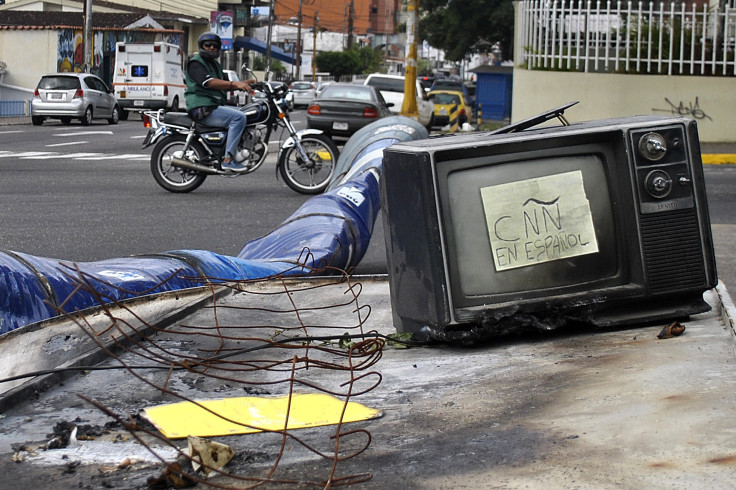Four Websites That Are Down In Venezuela and More

As protests grow and international attention turns to Venezuela, the government of President Nicolás Maduro has extended their media censorship practices to block a number of outside outlets and tools for activists.
Conflicting reports as to where, when and how long certain websites are being blocked indicate the blockages are inconsistent. Below are entities and services that are confirmed as unavailable either in recent days or are currently down in Venezuela.
1. Twitter – Protesters are contending that the government actively blocked image-sharing on Twitter last week after the service exploded with photos of police clashes and organizational info for protesters. Image-sharing is now functional on Twitter this week, but in the event it goes down again, Twitter offered a workaround to receive tweets via text message.
2. Zello – Zello is a “walkie-talkie” smartphone app that has become immensely popular amongst protesters around the world. The “push-to-talk” system allows protesters to communicate and coordinate effectively and efficiently. (It became the most downloaded iOS and Android app in Ukraine on Thursday.)
3. Pastebin – Pastebin is a service that allows users to share text with one another. For example, this currently trending paste is by hacktivist group Anonymous (or someone claiming they are part of Anonymous) that outlines U.S. interests in Venezuela and possible motives for interference. The service has been a means of communication and organization for protesters in conflicts across the world. Like Twitter, Pastebin’s people have told Venezuelans to get in touch with them if they cannot reach Pastebin.
4. NTN24/NTN24.com – The regulator of Venezuela’s telecom blocked this Colombia-based news group both on the Web and on TV after it aired video of a protester being shot dead in Venezuela’s capital, Caracas.
Internet service was down in San Cristobal, a city of 600,000, for 30 hours earlier this week. Further blockages were reported sporadically across the country. Conatel and CANTV are the Venezuelan government telecoms' regulator and provider, respectively. Both have denied they are censoring or degrading service.
Venezuela consistently hovers around the 120 rank in the Reporters Without Borders Press Freedom Index. Danny O’Brien of the Electronic Frontier Foundation told CNN he thought their censorship practices were “somewhat haphazard and arbitrary.” Venezuelans were often able to circumvent the blockages with proxy services.
The Venezuelan government also told CNN journalists to “get out” on Friday if they didn’t “rectify” their coverage of the protests. Their press credentials were revoked, reports CNN. CNN International and CNN en Español are still broadcasting in the country.
President Madura personally called the CNN journalists “a group of fascists” and a group that “(wants) to show the world that there is a civil war in Venezuela.” If Maduro continues the violent crackdown and media censorship, a civil war may be what he’ll have on his hands.
© Copyright IBTimes 2024. All rights reserved.






















